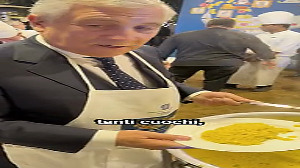The issue of pollution caused due to the non-degradable material is keeping consumer goods majors - from ITC and Dabur to Nestlé and PepsiCo - on their toes.

If demonetisation and Goods and Services Tax (GST) gave sleepless nights to consumer goods makers till early-2018, for the past few months it has been plastic packaging materials that are ringing alarm bells for these firms.
The issue of pollution caused due to the non-degradable material is keeping consumer goods majors - from ITC and Dabur to Nestlé and PepsiCo - on their toes.
While the matter had been flagged by environmentalists years ago, the Centre is now scurrying to put curbs on untreated plastic waste - most of which is produced by organised fast moving consumer good players (FMCGs).
The governments in at least five states - Tamil Nadu, Maharashtra, Uttarakhand, Punjab and Gujarat - have declared a ban on single-use plastic materials with varying timelines.
And at the central level, a joint body - comprising the urban development ministry and ministry of environment and forest - is acting fast to finalise the extent of responsibility manufacturers would have to take based on the extent of plastic they use in packaging.
It has already pitched for concrete plans from producers of consumer goods through the Central Pollution Control Board.
The onus of waste management lies on the manufacturers under the extended producers’ responsibility programme, which fall under the Plastic Waste Management Rule, 2016.
And now, the quantum of responsibility is being negotiated between the private players and the authorities.
Individually, several large FMCG players like ITC, PepsiCo, Reckitt Benckiser (RB), Nestle and Dabur, among others, have set the ball rolling.
According to a Nestle India spokesperson, the company has reduced the use of plastic by 1,500 tonnes last year, apart from installing Gasolyser in its plant that converts plastic into fuel.
“Nestlé India has collaborated with industry bodies and organisations like Indian Pollution Control Association (IPCA), NEPRA and Saahas Waste Management to conduct education and awareness programmes, workshops, street plays for waste pickers, waste dealers, traders and aggregators.
"We are also initiating the second phase of the extended producer responsibility (EPR) that includes collection, segregation and disposal of waste in a pact with other stakeholders in 12 states,” he said.
A spokesperson from Reckitt Benckiser said, “We will continue to use plastic in packaging and ensure by 2025 that at least 25 per cent of its content is recycled plastic. By 2025, 100 per cent of plastic packaging will be recyclable or reusable.”
Citing its tie-up with IPCA and NEPRA, A. Sudhakar, head-CSR, Dabur India said, “Our plastic recycling initiative covers nine states and is being expanded to more states. A separate initiative is also being implemented particularly for recycling Tetra Pak consumer waste.”
PepsiCo said that all its packaging is recyclable or energy recoverable. It is planning to pilot the first-ever 100 per cent compostable, plant-based packaging for Lay’s and Kurkure snacks products this year.
Photograph: Reuters











